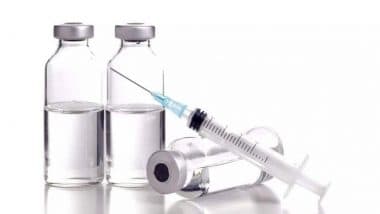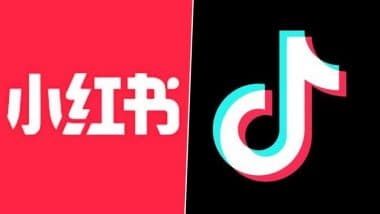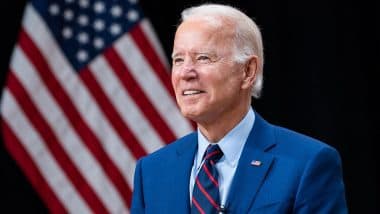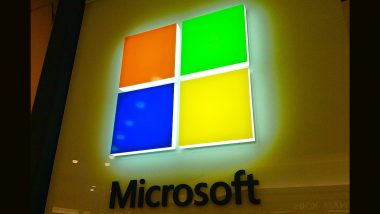New York, December 11: The Pfizer-BioNTech Covid-19 vaccine is poised to cross its final regulatory hurdle in a matter of hours. The US Food and Drug Administration has signalled imminent closure, saying it will "rapidly work toward finalisation and issuance of an emergency use authorisation". "Following yesterday's positive advisory committee meeting outcome regarding the Pfizer-BioNTech COVID-19 vaccine, the US Food and Drug Administration has informed the sponsor that it will rapidly work toward finalisation and issuance of an emergency use authorisation. The agency has also notified the US Centers for Disease Control and Prevention and Operation Warp Speed, so they can execute their plans for timely vaccine distribution," read a statement Friday from the FDA.
On Thursday, after nine hours of non-stop debate, a high powered US vaccine advisory panel endorsed mass use of the Pfizer-BioNTech Covid-19 vaccine, putting the final sign-off in FDA's court. The FDA does not need to follow the panel's recommendation but it usually does. In a 17-4 vote, the usually obscure Vaccines and Related Biological Products Advisory Committee (VRBPAC), decided that Pfizer's shot is safe in people aged 16 and older. Lucira COVID-19 All-In-One Test Kit: US FDA Authorises First Coronavirus Diagnostic Test For Self-Testing at Home, Check Details.
Before the final vote, which came around 6 pm EST, the chair of the vaccine panel boiled down the issues to a single question: Do the benefits of the Pfizer vaccine outweigh its risks for vaccination in people aged 16 and older? The sticking point for the last one hour was about vaccine safety in 16 and 17 year olds. "The data is thinnest in this age group," said one of the vaccine advisory members. At least three members said they would prefer vaccinations only for people older than 18.
"The question is whether you know enough" to get the country to a safer place, said panel member Dr. Paul Offit of the Children's Hospital of Philadelphia. Offit voted to greenlight the vaccine. Thursday's decision marks the beginning of a giant U-turn in the pandemic's winter surge. Cases and deaths are smashing records here, with more than 3,100 succumbing to the virus on Wednesday alone.
Pfizer said it would have 25 million doses of the two-shot vaccine for the US by the end of December. Based on pre-decided prioritisation, health care workers and nursing home residents will be first in line. On December 17, the FDA vaccine panel will review a vaccine from Moderna and the National Institutes of Health, which has also shown over 90 per cent protection.
Vaccines from Johnson & Johnson (single dose) and AstraZeneca/Oxford University are also in the pipeline. Multiple vaccines must succeed for countries to crush the virus. The Pfizer-BioNTech vaccine is yet to be tested among pregnant women and the immuno-compromised. There's also not enough data on children under 16, although trials are on among children as young as 12. Pfizer made a strong pitch for its vaccine for "prevention of Covid-19 in individuals 16 years and older, with or without evidence of prior infection".
Pfizer said its overall vaccine efficacy of 95 per cent was observed in both younger and older adults as well as in diverse demographics. "In addition, we have demonstrated a favorable safety and tolerability profile in more than 40,000 individuals," Kathrin Jansen, Head of Vaccine research at Pfizer, told US regulators om Thursday.
Responding to multiple questions on efficacy in 16 and 17-year-olds, Pfizer suggested that efficacy in older populations could be extrapolated downwards into the paediatric population. William Gruber, Pfizer's Senior Vice President of Vaccine Clinical research, listed fever, chills and pain at the injection site as the most commonly reported adverse effects after vaccination.
Pfizer's dash to the finish line has broken all vaccine development speed records, and on a new mRNA technology platform. The coronavirus itself isn't there inside the mRNA vaccine. Instead, it is embedded with a piece of genetic code that trains our bodies to recognise imminent enemy action from the spike protein on the surface of the virus. When the mRNA enters our cells, it begins to spew copies of the coronavirus' spike protein. That prompts the immune system to churn out antibodies against the virus.
In virology, generating neutralizing antibodies is a good surrogate of our bodies' ability to protect from sickness. The coronavirus has killed more than 292,000 people in the US and sickened more than 15 million - the highest caseload anywhere in the world.
(The above story first appeared on LatestLY on Dec 11, 2020 07:49 PM IST. For more news and updates on politics, world, sports, entertainment and lifestyle, log on to our website latestly.com).













 Quickly
Quickly




















